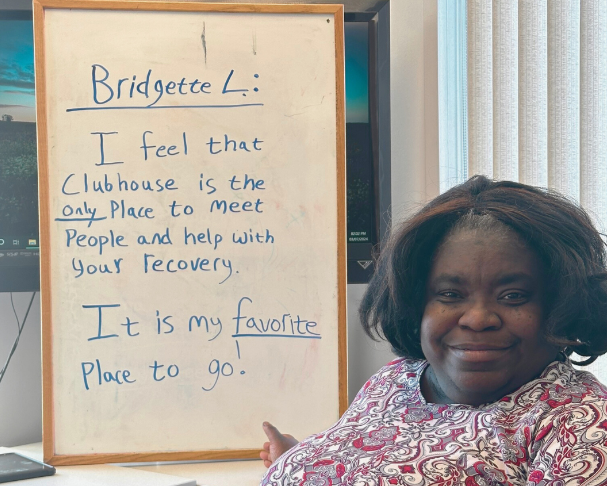Empowering Disabled Adults Through Community: Weekend Retreat at Easterseals Massachusetts
by Erin Hawley
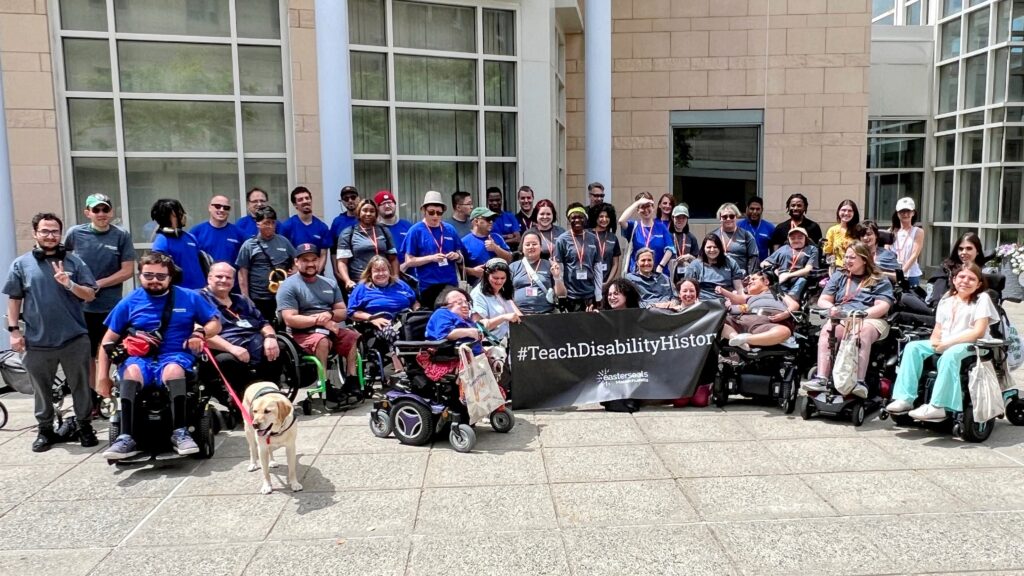
By Grant Stoner
Last month, Easterseals Massachusetts celebrated its annual mentorship retreat for young adults with disabilities. The Empowering You 2024 Mentorship Retreat featured activities and events like workshops emphasizing community building, handcrafted art, games, and several guest speakers. For disabled individuals living in Massachusetts, this annual event encouraged embracing your disabled identity, building support throughout your community, and, more importantly, the capability to confidently and comfortably empower oneself.
Empowering You is the culmination of efforts from Easterseals Massachusetts’ mentorship programs Thrive and Brothers Against Discrimination (B.A.D). While Thrive is specifically for disabled young women, and B.A.D for young men, both groups seek to help disabled members promote and advocate for themselves as confident disabled members of society. I spoke with Easterseals Massachusetts Youth Program Manager, Desi Forte, who explored this year’s mentorship retreat theme and its varying activities, the importance of accommodating numerous disabilities, and her hopes for the future.
What Is Empowering You?
Confidence and self-worth are important tools for any individual. Yet, for disabled people that may struggle to feel welcome in a society that can still pose numerous inaccessible barriers, as well as general notions of ableism, empowerment is crucial for daily living. While Thrive and B.A.D regularly develop programs to create and refine self-help skills, Forte explains it was important to have the annual retreat focus on the overall theme of empowerment.
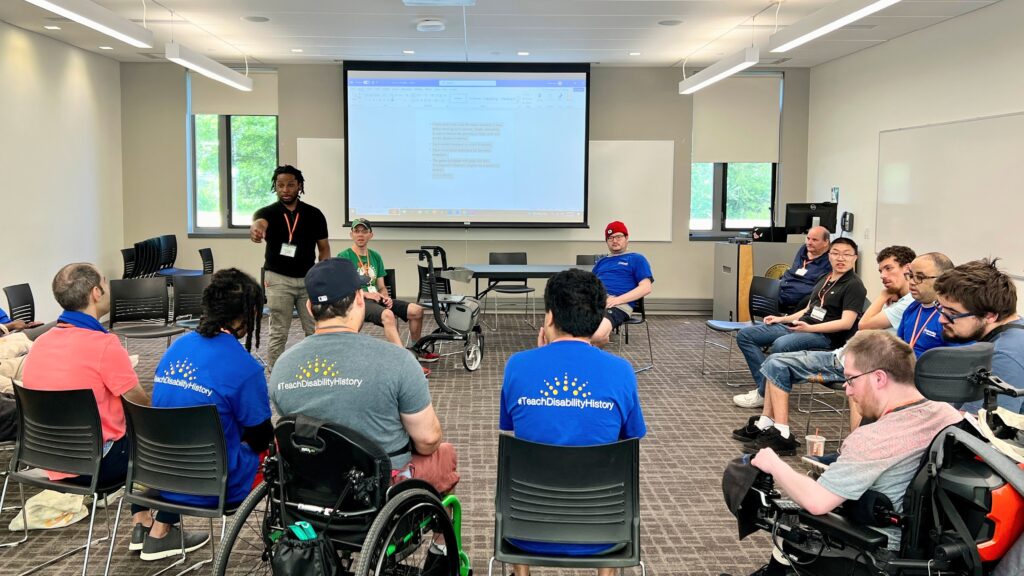
“The focus of the program was really around empowering people with disabilities by creating these communities,” Forte said. “With the theme of Empowering You, we were trying to find an all-encompassing theme that was broad in terms of scope of what we could cover. Really emphasizing the point around empowerment because that’s what these programs were built to do.”
The annual mentorship retreat took place over a weekend to allow attendees time to engage with activities. Forte notes that the Friday and Saturday were primarily reserved for members of B.A.D, while Thrive members met on Saturday and Sunday, with intentional overlap on Saturday for both groups to connect with one another. Forte explains that approximately 18 attendees within each program stayed for the event, with ages ranging from 15 to adults in their 50s. Yet, despite the vast differences in age, the event provided activities for all to enjoy.
“There were activities around the theme of empowerment,” she said. “There was an art activity where individuals created prints just showing what empowerment means to them. There were speakers around leadership within the disability community and beyond, and how they can be leaders in their lives. There was a lot of structured down-time as a way for these community members to connect with one another to build organic mentoring and empowering relationships from the different generational communities being able to connect with one another.”
Empowering Through Care
Each annual mentorship retreat brings attendees to new locations, and Empowering You was no different. Hosted at Bridgewater State University, members and volunteers were given access to the facilities of the college campus, including residential halls. While this was a great way to directly bring disabled individuals into local communities, it also provided its own logistical challenges.
For many disabled people, traveling, and especially staying overnight, can be a complex process. From transferring medical equipment to extensive care regimes, many disabled individuals do not have the luxury to temporarily bring their care to other areas. Thankfully, Forte notes that the event was able to comfortably and successfully accommodate everyone.
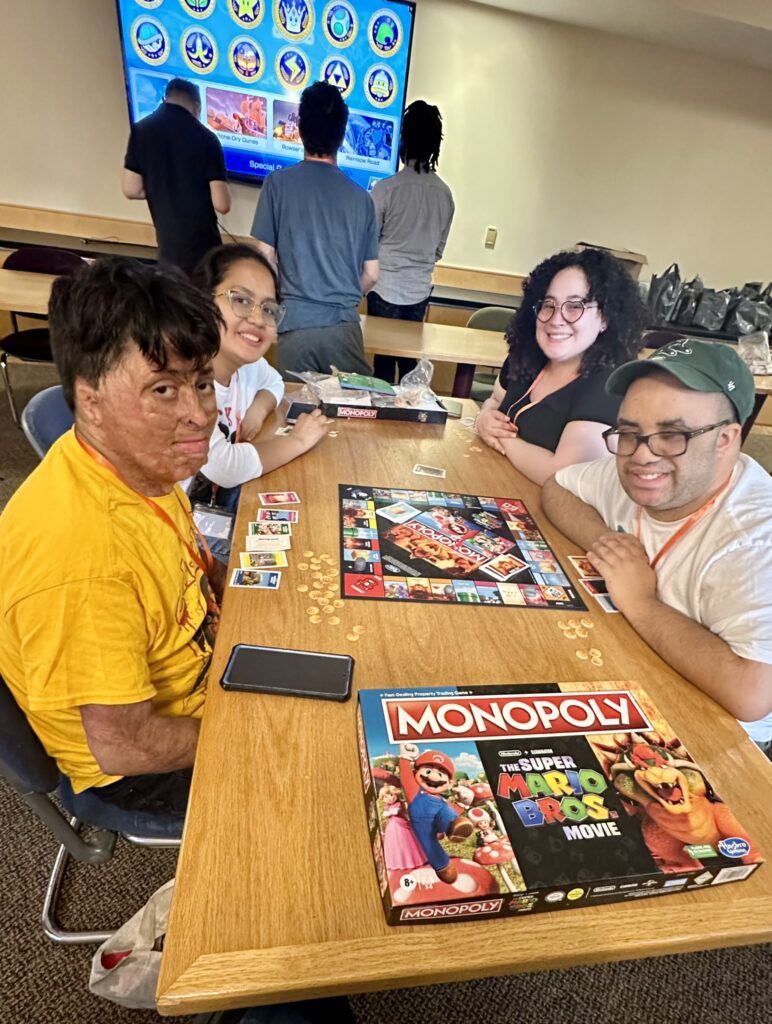 “One of the strongest positive outcomes we always see, is that because this was an overnight event, we were able to support [Personal Care Assistant] needs if that’s something participants need to be involved,” she said. “[We also provide] other needs they may have that may be a barrier for them to participate in other overnight events. Just getting a chance to be overnight, away from their everyday environment, is always a strong part of this program.”
“One of the strongest positive outcomes we always see, is that because this was an overnight event, we were able to support [Personal Care Assistant] needs if that’s something participants need to be involved,” she said. “[We also provide] other needs they may have that may be a barrier for them to participate in other overnight events. Just getting a chance to be overnight, away from their everyday environment, is always a strong part of this program.”
Some attendees, as Forte explains, are experiencing their first overnight event. And for others, these retreats are something to look forward to annually, allowing disabled individuals to connect with peers, as well as comfortably and confidently spend significant time away from their home environment. Forte notes that one of the most common pieces of feedback after each event is the joy with being able to stay overnight. “The feedback that we’ve gotten many, many times, and this year especially, is just being able to be in the space is something that those involved don’t get the opportunity to do very often.”
Moving Forward
Empowering You was not the only event available this year. Forte notes that Easterseals Massachusetts consistently offers numerous events and retreats, both virtually and physically, for disabled attendees and mentors alike. For disabled individuals, these create opportunities to build not only self-confidence, but a sense of community, something crucial for marginalized groups like disabled people. And as each event draws to a close, Forte is hopeful that they will continue with new themes and places.
“The hopes for future events are to just keep them going and to keep them growing,” she said. “To be able to keep doing these and offering these opportunities. The only concerns are always around funding and making sure that that’s available to support these programs, and to support these opportunities.”
Empowering You more than embraced its theme. The intersections of different mentorship groups, community building, and creating necessary tools to empower oneself were felt across the college campus. For disabled individuals, finding a sense of belonging internally, as well as through a community, are crucial components of long-term care. Without community, disabled people may struggle to engage within a traditionally nondisabled society. And while these events continue, self-empowerment and connecting with others will provide even more opportunities for disabled individuals to develop a sense of belonging. And as Forte explains, these retreats and events are integral to the disabled community.
“As a person with a disability myself, I completely understand firsthand what being involved in these programs means,” she said. “And really, what it means for me to be able to give back to this community that means so much to me.”
To learn more about Easterseals Massachusetts, please visit their website.







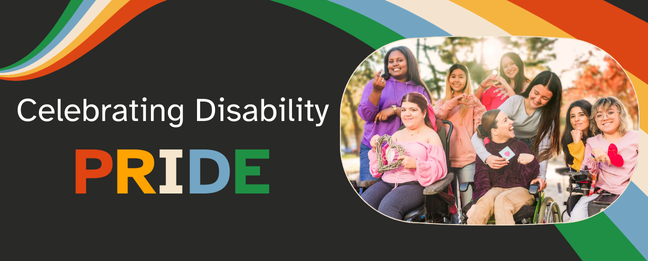
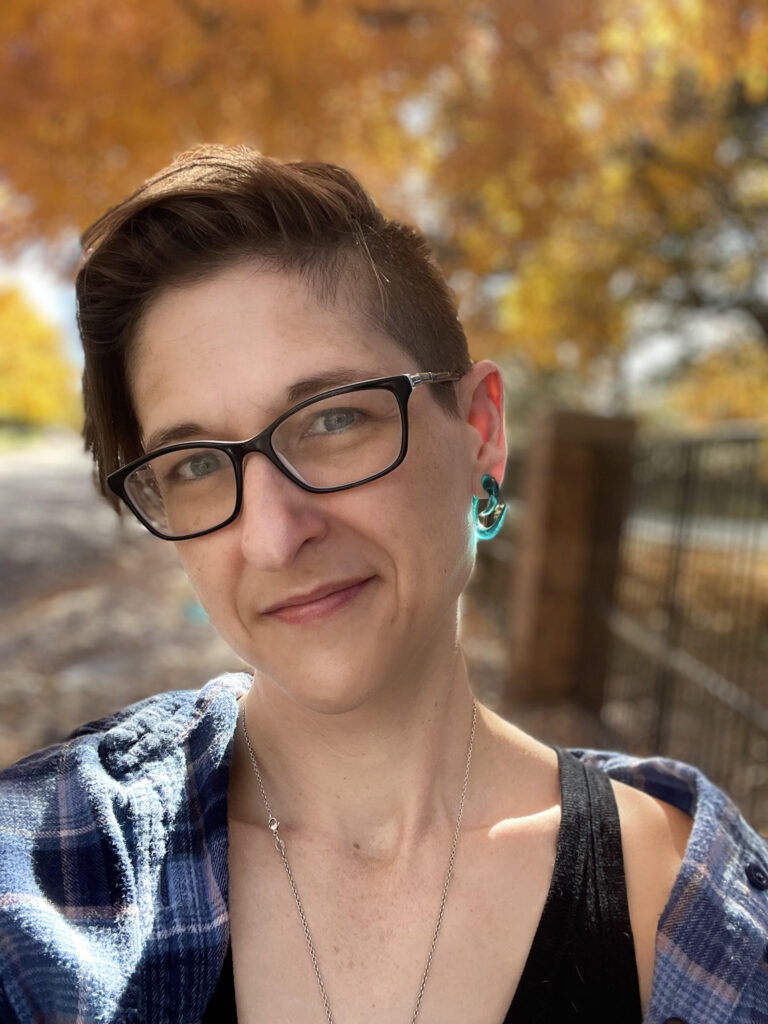 When I was a young adult, my family and I would go to medical conventions to learn new information and technologies that could help accommodate my needs while living with short gut syndrome. Short gut syndrome is so rare that these conventions were the only way that I ever got to see or meet other people who lived a similar experience to my own. I felt included, accepted and understood more there than anywhere else. Meeting all these young people like me who had the same challenges, the same desires, same hopes made me see that it was all possible if I was allowed to exist without the constraints and limitations put on me.
When I was a young adult, my family and I would go to medical conventions to learn new information and technologies that could help accommodate my needs while living with short gut syndrome. Short gut syndrome is so rare that these conventions were the only way that I ever got to see or meet other people who lived a similar experience to my own. I felt included, accepted and understood more there than anywhere else. Meeting all these young people like me who had the same challenges, the same desires, same hopes made me see that it was all possible if I was allowed to exist without the constraints and limitations put on me. 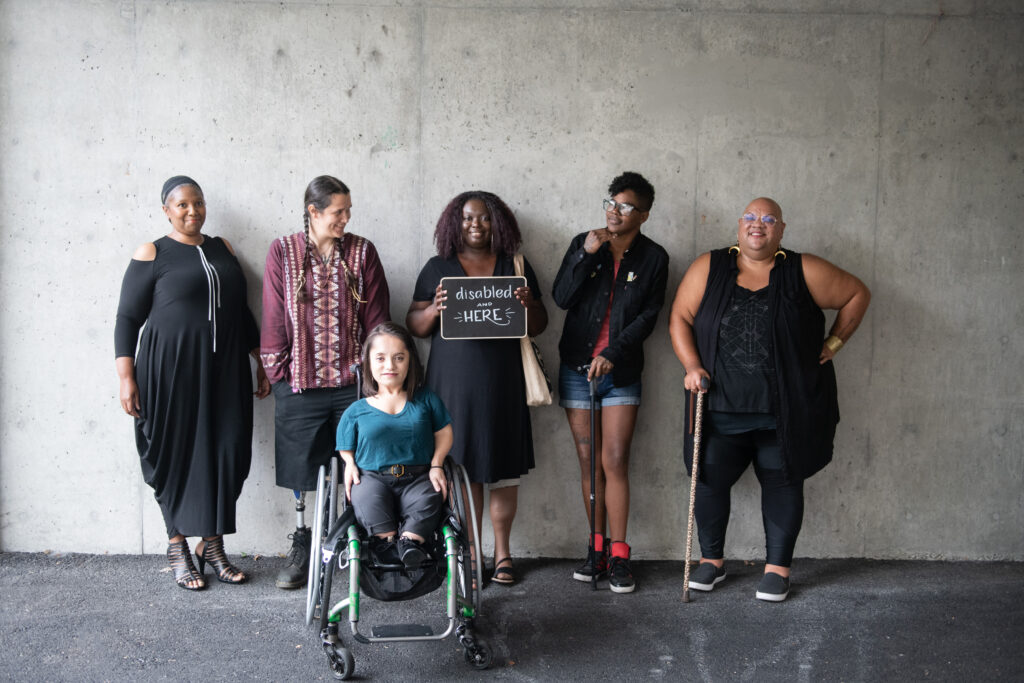


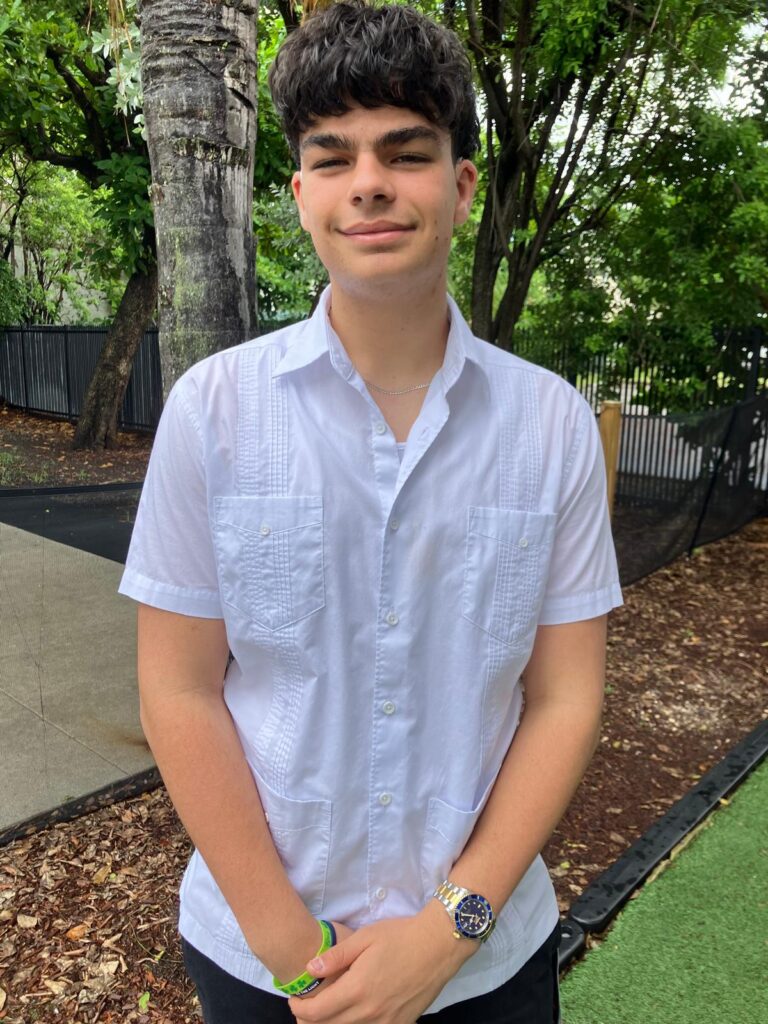
 Through the support of the Easterseals family, Sebastian started an internship last year at Nicklaus Children’s Hospital in Miami, working in their dining services department. He’s gained further skills in customer service, food prep, and creative food presentations. Earlier this year, the hospital hired him part time with benefits, and he is now working full time for the summer.
Through the support of the Easterseals family, Sebastian started an internship last year at Nicklaus Children’s Hospital in Miami, working in their dining services department. He’s gained further skills in customer service, food prep, and creative food presentations. Earlier this year, the hospital hired him part time with benefits, and he is now working full time for the summer. 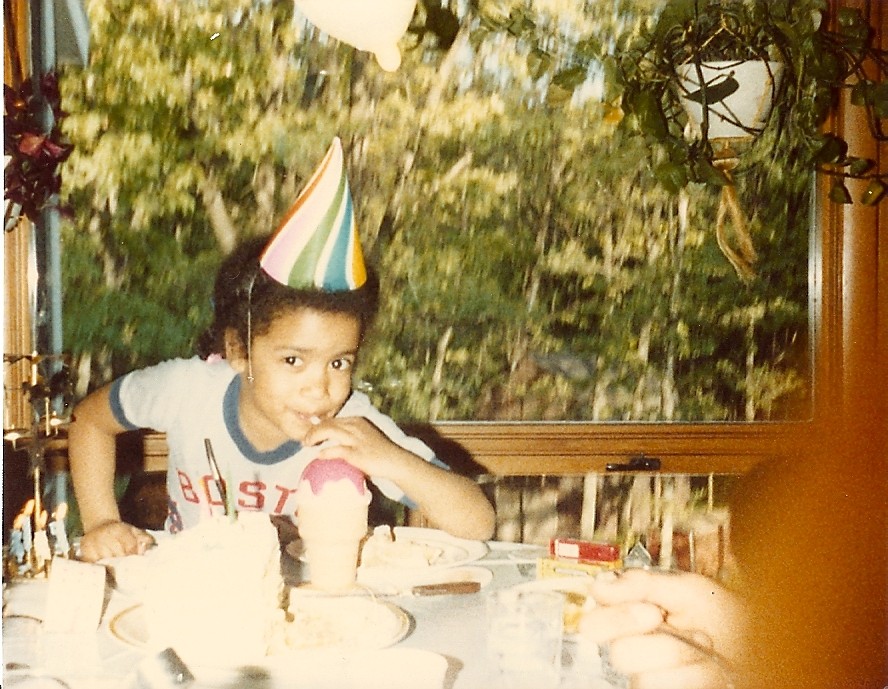 When I was a kid, I hate to say it, but, my autism caused me nothing but pain and anxiety. I was bullied, misunderstood by my teachers and had very low self esteem. Also, I was extremely fearful of everything, clinging to my mom every night and when we were out in public. I had body tics, which caused me physical pain and discomfort and severe obsessive compulsive disorder, from which I spent hours a day doing rituals to “keep my mom safe” and battling intrusive thoughts.
When I was a kid, I hate to say it, but, my autism caused me nothing but pain and anxiety. I was bullied, misunderstood by my teachers and had very low self esteem. Also, I was extremely fearful of everything, clinging to my mom every night and when we were out in public. I had body tics, which caused me physical pain and discomfort and severe obsessive compulsive disorder, from which I spent hours a day doing rituals to “keep my mom safe” and battling intrusive thoughts.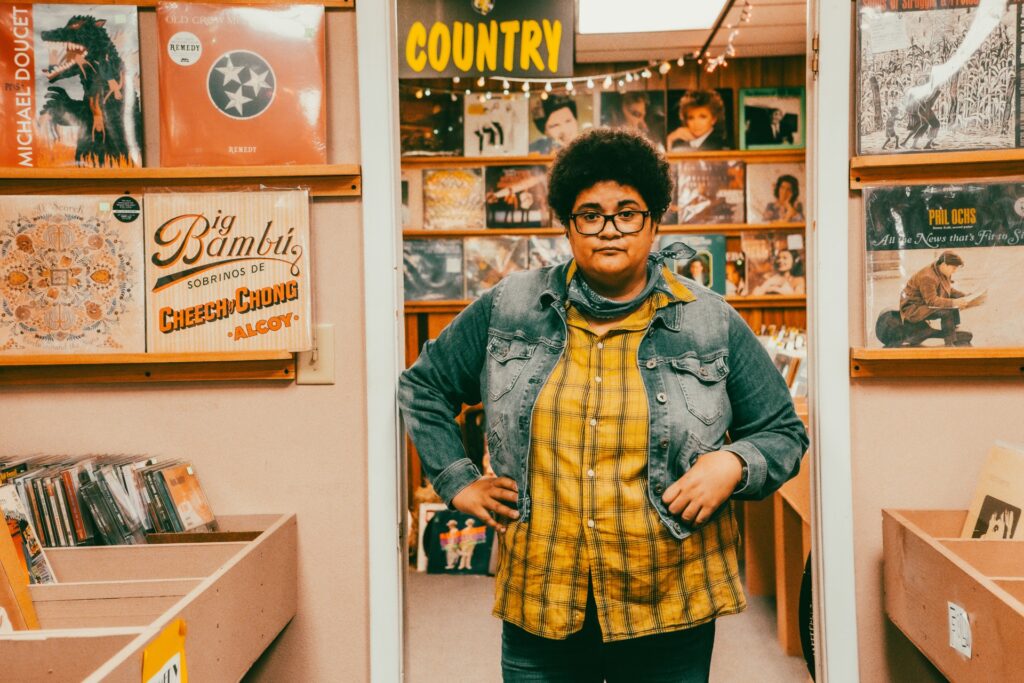
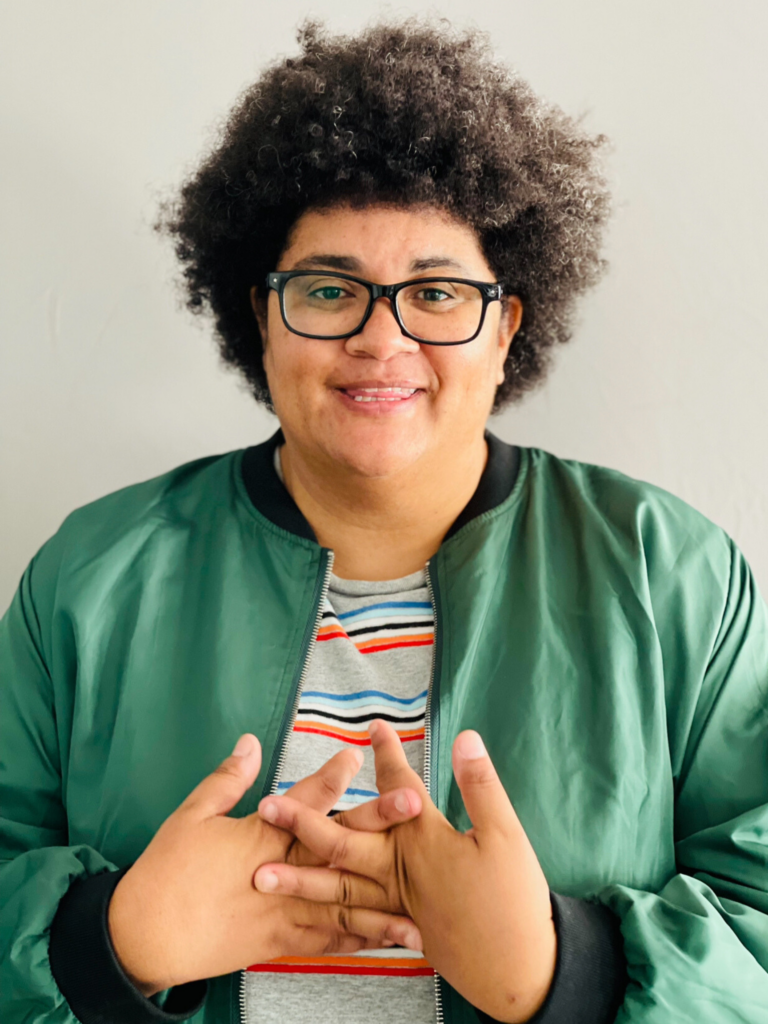 Disability pride has certainly changed the game for me. I see folks like me on TV, in ads, and out in public. I finally see characters I can identify with in my favorite shows and movies. I am grateful to organizations like Easterseals who are helping us empower ourselves with things like blogs and social media content, and the biggest for me — the Easterseals Disability Film Challenge!
Disability pride has certainly changed the game for me. I see folks like me on TV, in ads, and out in public. I finally see characters I can identify with in my favorite shows and movies. I am grateful to organizations like Easterseals who are helping us empower ourselves with things like blogs and social media content, and the biggest for me — the Easterseals Disability Film Challenge!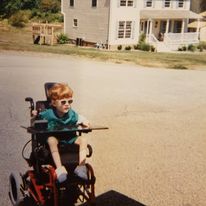 I have numerous fond memories of growing up in the southwestern region of Pennsylvania. From school picnics to a local amusement park, to spending hours cruising through my neighborhood in my red wheelchair, I loved the freedom of exploration. Yet, despite my fondness of the outdoors, I never viewed my wheelchair as an accessibility tool, rather just a pair of legs… with tires. As a child and young adult, I did everything I could to shy away from my disabled side. And every awkward interaction with the public or painful hospitalization made me shrink further into myself. I didn’t want to be disabled, and by refusing to acknowledge my limitations, I thought I could trick myself into being able-bodied.
I have numerous fond memories of growing up in the southwestern region of Pennsylvania. From school picnics to a local amusement park, to spending hours cruising through my neighborhood in my red wheelchair, I loved the freedom of exploration. Yet, despite my fondness of the outdoors, I never viewed my wheelchair as an accessibility tool, rather just a pair of legs… with tires. As a child and young adult, I did everything I could to shy away from my disabled side. And every awkward interaction with the public or painful hospitalization made me shrink further into myself. I didn’t want to be disabled, and by refusing to acknowledge my limitations, I thought I could trick myself into being able-bodied.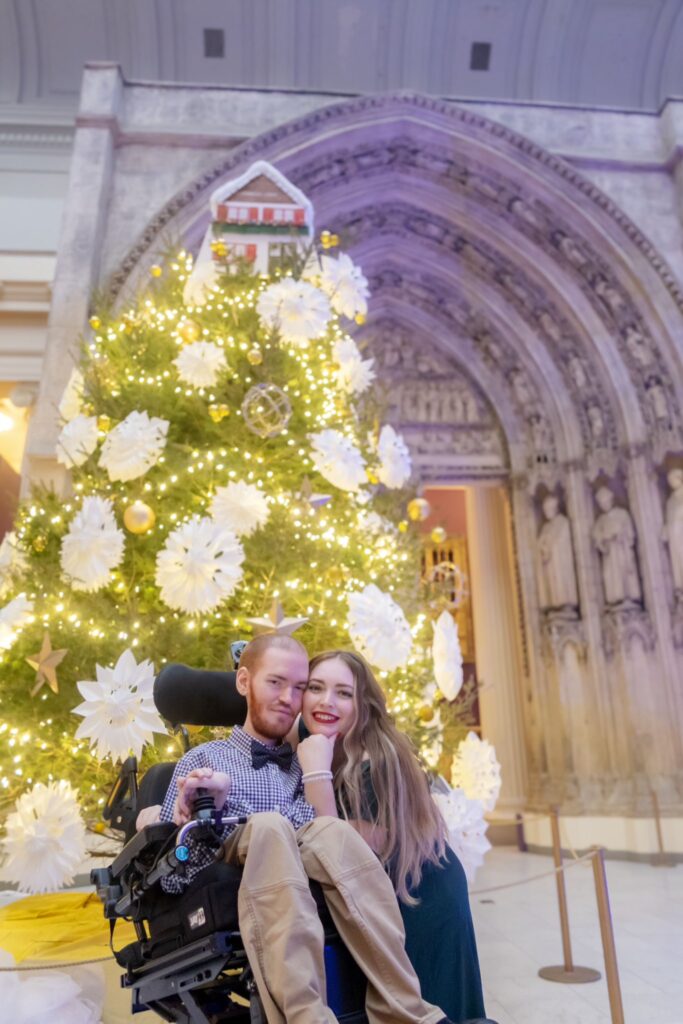

 I’m deaf and I grew up mainstreamed. I went to public school before and after my diagnosis, had zero access to ASL (American Sign Language) and the deaf community, and zero access to, well, anything and everything, really. There was a deaf school about a half hour or so away from where we lived, and my dad knew about it, but nobody talked to me about it or asked me if I wanted to go. My mother, who became deaf at the age of three due to Rubella (German measles), grew up the same way. I’m pretty sure her upbringing inspired mine. After all, it was all she knew and all my dad knew. And the audiologists never brought up deaf schools or ASL, only spoken language and hearing aids that I guess we couldn’t afford since I never got them growing up.
I’m deaf and I grew up mainstreamed. I went to public school before and after my diagnosis, had zero access to ASL (American Sign Language) and the deaf community, and zero access to, well, anything and everything, really. There was a deaf school about a half hour or so away from where we lived, and my dad knew about it, but nobody talked to me about it or asked me if I wanted to go. My mother, who became deaf at the age of three due to Rubella (German measles), grew up the same way. I’m pretty sure her upbringing inspired mine. After all, it was all she knew and all my dad knew. And the audiologists never brought up deaf schools or ASL, only spoken language and hearing aids that I guess we couldn’t afford since I never got them growing up.
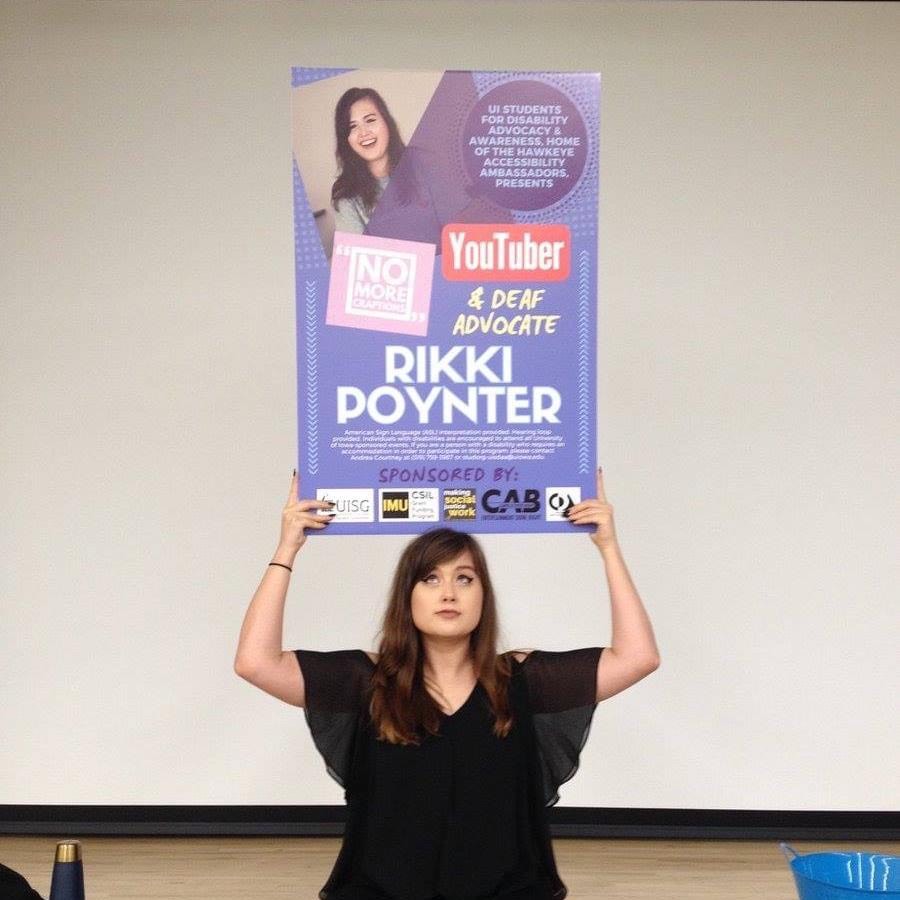 With all of that being said about my hearing, non-signing peers, both in the disabled and LGBTQ+ communities and the spaces in general, I often feel out of place in deaf spaces as well. We talk a lot about lateral ableism within our own communities. Sometimes that is the case, and sometimes it’s really just our own lack of confidence. I’m always worried about my ASL skills not being enough, especially as one would think they’d be much better than they were when I first started learning in 2015. But lack of being in a signing environment consistently can have you struggling with ASL fluency. I worry that when I don’t understand something, they’ll be annoyed with me. I worry that when my signing is incomprehensible, they’ll be annoyed with me.
With all of that being said about my hearing, non-signing peers, both in the disabled and LGBTQ+ communities and the spaces in general, I often feel out of place in deaf spaces as well. We talk a lot about lateral ableism within our own communities. Sometimes that is the case, and sometimes it’s really just our own lack of confidence. I’m always worried about my ASL skills not being enough, especially as one would think they’d be much better than they were when I first started learning in 2015. But lack of being in a signing environment consistently can have you struggling with ASL fluency. I worry that when I don’t understand something, they’ll be annoyed with me. I worry that when my signing is incomprehensible, they’ll be annoyed with me.


